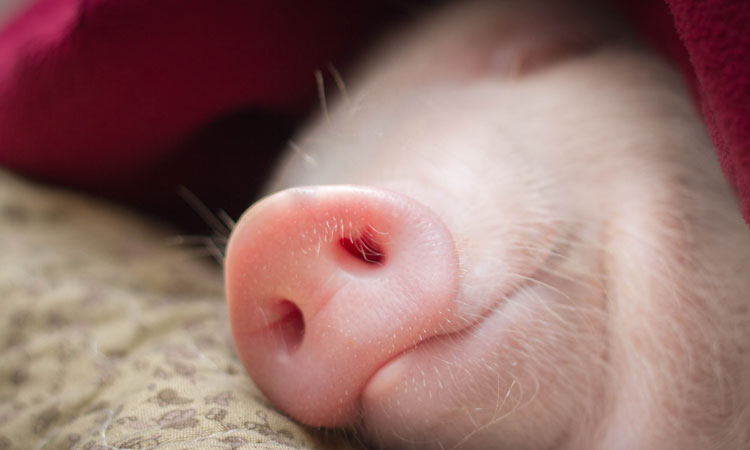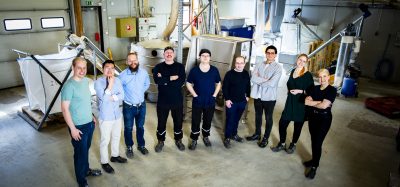Bold ambitions for the UK cultured meat industry brings peace for pigs
- Like
- Digg
- Del
- Tumblr
- VKontakte
- Buffer
- Love This
- Odnoklassniki
- Meneame
- Blogger
- Amazon
- Yahoo Mail
- Gmail
- AOL
- Newsvine
- HackerNews
- Evernote
- MySpace
- Mail.ru
- Viadeo
- Line
- Comments
- Yummly
- SMS
- Viber
- Telegram
- Subscribe
- Skype
- Facebook Messenger
- Kakao
- LiveJournal
- Yammer
- Edgar
- Fintel
- Mix
- Instapaper
- Copy Link
Posted: 19 May 2021 | Mandy Parrett (New Food) | No comments yet
Ivy Farm Technologies, an Oxford University spin-out, has revealed lofty ambitions to become the first commercial producer of sustainable, cultured meat in the UK, thanks to its unique technology.


Despite global trends toward more plant-based diets, as a species our appetite for meat continues unabated. Amid blatant evidence that current agricultural practices are unsustainable, research into alternative options for meat production have progressed significantly, with Singapore becoming the first country in the world to approve cultured meat for sale last December.
Gathering momentum on home shores, co-founder of the new startup Dr Russ Tucker said Ivy Farm plans to put Britain on the map in this emerging industry by producing cultured meat products – beginning with a slaughter-free sausage – for supermarkets and the restaurant trade from 2023.
To achieve this, the company is raising funds to build a pilot R&D facility from which it plans to produce 12,000 tonnes of cultured pork a year by 2025. According to the company, this is equivalent to saving the lives of 170,000 pigs.
Given the UN Department of Economic and Social Affairs’ prediction that the global population will reach nearly 10 billion by 2050, they expect global meat demand to increase by 70 percent in that time. Traditional meat production methods would drastically accelerate deforestation and create further climate change. Cultured meat, also known as lab-grown or cellular meat, comes with a significantly lower carbon footprint and saves animals from being slaughtered.
“Already nearly half the worldwide harvest is required to feed livestock and that’s only going to go up. Cultured meat is the silver bullet – through cutting edge technology we can provide real, high-quality meat while saving the planet,” said Dr Tucker.
Ivy Farm’s non-GMO production process uses technology developed at Oxford University, in the same building that developed the COVID-19 vaccine.
The process requires a small number of cells to be taken from an animal and placed in a bioreactor. The cells are exposed to precise quantities of vitamins and nutrients that enable them to replicate and produce meat in as little as three-to-four weeks. The system is continuous – so muscle and fat can be harvested without disturbing cells growing underneath.
Ivy Farm believes its technology is a game changer because of a unique ‘scaffold’ system in which the cells grow. The company is already in discussions with the UK Food Standards Agency, which will have to approve cultured meat before it can go on sale in the UK.
Rich Dillon, Ivy Farm chief executive, said the company also plans to talk to regulators in other parts of the world.
Mr Dillon commented: “Make no mistake, cultured meat is here to stay. It’s a compelling proposition – real meat, guilt free. Singapore has approved cultured meat and in Israel, Benjamin Netanyahu wants the country to become a ‘powerhouse’ in alternative meat. China is also investing huge amounts into the industry.
“We believe our technology is among the best in the world and that we can fly the flag for Britain.”
Related topics
Cultured Meat, Food Security, New product development (NPD), Processing, Proteins & alternative proteins, Research & development, Sustainability
Related organisations
Ivy Farm Technologies, Oxford University, UK Food Standards Agency (FSA), United Nations Department of Economic and Social Affairs









